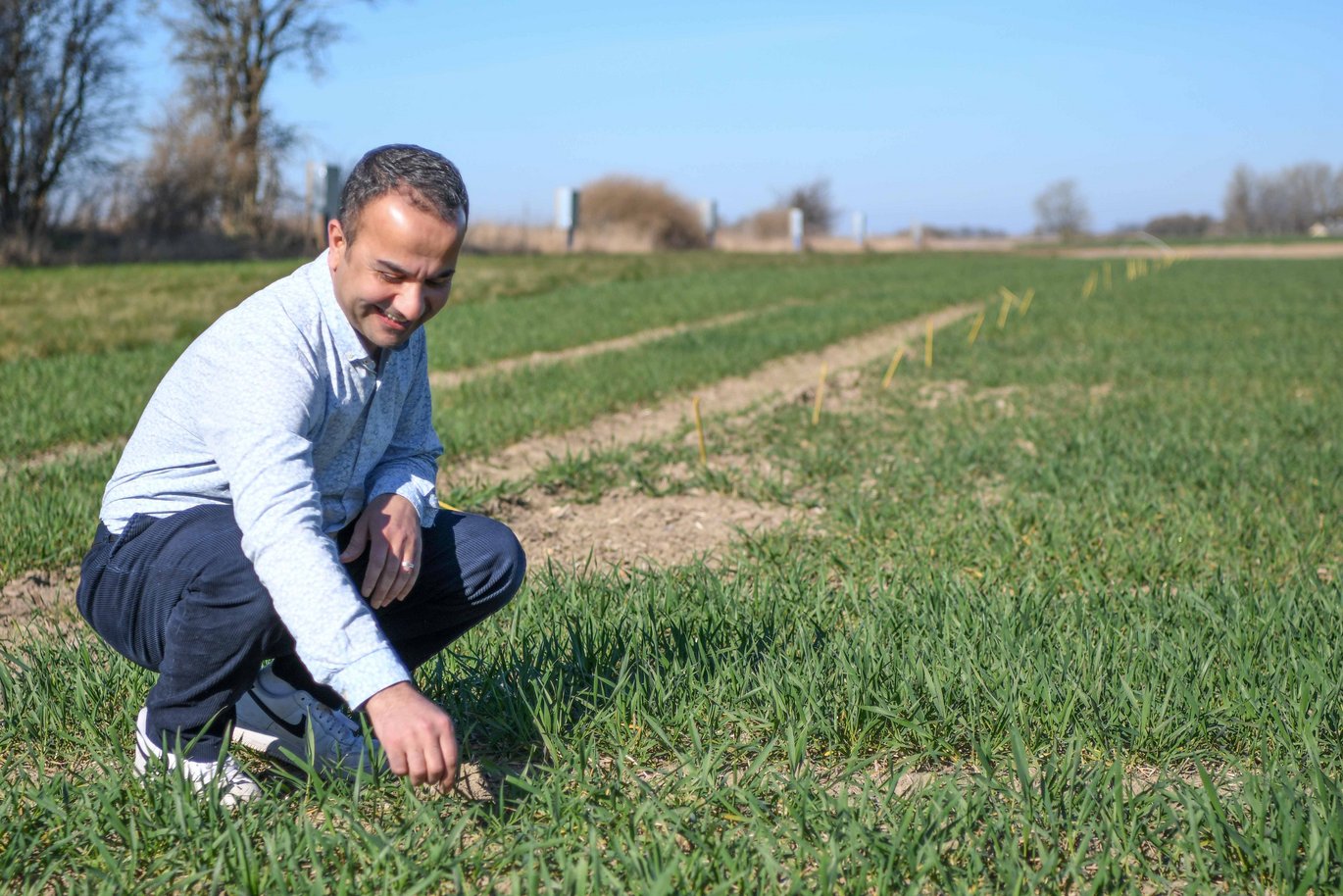Defending plants with natural chemistry and understanding their ecology
Jawameer Hama, a dedicated researcher in plant chemistry, has made significant strides in understanding the role of plant secondary metabolites in ecological interactions. With a focus on sustainable agriculture, Jawameer Hama is working to reduce the dependency on pesticides and synthetic fertilizers.

Jawameer Hama's journey began nearly four years ago at Aarhus University, where he started focusing on the role of plant chemistry, particularly plant secondary metabolites, in plant interactions and responses to ecological factors.
"I have conducted several experiments to understand how plants use secondary metabolites to respond to pests like nematodes, which are tiny worms in the soil," Jawameer Hama explains. His research has successfully identified compounds that plants produce in response to pest attacks, which can be transferred to other plants to enhance their resistance as well.
Fact Box: Plant secondary metabolites Plant secondary metabolites are organic compounds that are not directly involved in the normal growth, development, or reproduction of plants. These compounds often play a role in plant defence against pests and diseases, and in interactions with other organisms. |
From environmental science to sustainable agriculture
Jawameer Hama completed his Ph.D. at the Department of Plant and Environmental Sciences at the University of Copenhagen, where he focused on how plant secondary metabolites transfer from plants to soil and water through precipitation. "My research was more on environmental science, looking at how plants can contaminate water," he says. This background laid the foundation for his current research at Aarhus University, where he is now exploring how these compounds can be utilised to improve plant health and agricultural practices.
Natural solutions for agriculture
Jawameer Hama is involved in several projects that aim to utilise plant secondary metabolites for sustainable agriculture. One of the projects, called InterPhyt (funded by Independent Research Fund Denmark) collaborates with Mette Vestergård and Inge Fomsgaard. InterPhyt focuses on transferring bioactive compounds from one plant to another to reduce dependency on pesticides. "The goal is to use these compounds to enhance plant health and response, so we don't have to rely on pesticides," he explains.
Another project, BioNI(funded by Novo Nordisk Foundation), investigates biological nitrification inhibitors (BNI)—compounds that suppress bacteria responsible for converting ammonia to nitrate in the soil. "If we can suppress these bacterial communities, we can provide ammonia to plants without using synthetic fertilisers," Jawameer Hama says. This project aims to reduce the need for synthetic fertilisers by utilising natural plant compounds.
Fact Box: Biological nitrification inhibitors Biological nitrification inhibitors are compounds produced by plants that suppress the activity of bacteria converting ammonia to nitrate in the soil. This helps retain ammonia in the soil, providing a natural source of nitrogen for plants. |
Taking over for professor
Jawameer Hama is now a tenure-track assistant professor at the Department of Agroecology at Aarhus University. He collaborates with colleagues like Inge Fomsgaard and is set to take over some of her research group upon her retirement. "We use metabolomics to analyse plant samples at the metabolite level, using techniques like gas chromatography (GC-MS) and liquid chromatography (LC-MS/MS)," he explains.
Fact Box: Metabolomics Metabolomics is the study of chemical processes involving metabolites. It involves analysing the metabolic profile of biological samples to understand the biochemical processes occurring within an organism. |
More than one key research areas
Another focus of Jawameer Hama’s research is plant interactions. Plant interactions refer to the various ways plants interact with their environment, including other plants, animals, microorganisms, and abiotic factors. These interactions can be beneficial, neutral, or harmful and play a crucial role in shaping ecosystems. Understanding plant interactions is crucial in agriculture and ecology, to design sustainable cropping systems, manage pests and diseases naturally, and enhance soil health through beneficial microbial interactions.
Intercropping is another key area of Jawameer Hama’s research. He explains that intercropping involves growing two or more plant species together, where one plant benefits from having the other plant's growing in the same area. "It's a way to use natural processes to improve agriculture," he adds.
Jawameer Hama is excited about the future of his research. "The goal is to find ways to reduce dependency on pesticides and synthetic fertilisers," he says. He envisions expanding his projects to combine the benefits of biological nitrification inhibitors and transferring compounds, aiming for a future with no or at least minimal fertilisers and pesticides. "It's a challenging but promising field, and I'm looking forward to exploring more possibilities," he says.
Collaborations and future prospects
Jawameer Hama collaborates with various universities and research groups to advance his projects. "I mainly collaborate with the University of Copenhagen, as it's easy and fairly close," he says. He is also involved in international projects, focusing on plant chemistry and chemical ecological interactions. He is optimistic about the future of his research. "More people are becoming interested in plant secondary metabolites, and there are many opportunities for collaboration," he says, believing that understanding and utilising these compounds can lead to better plant health and more sustainable agricultural practices.
More information
Contact: Tenure Track Associated Professor Jawameer Hama, Department of Agroecology, Aarhus University. Mail: jawameer@agro.au.dk
